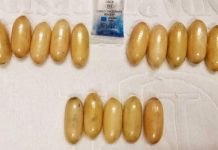The Food and Beverages Association of Ghana (FABAG) is demanding a business-friendly 2026 budget that prioritises industrial recovery and restores confidence among manufacturers.
The Association has thus outlined seven key expectations it wants reflected in the upcoming budget including a reduction in nuisance taxes, measures to stabilise the foreign exchange market and inflation as well as policies to support local manufacturing and value addition.
Executive Chairman of FABAG, John Awuni, in a statement said the food and beverage sector continues to face mounting challenges that are eroding investment and threatening jobs..
He made the point that rationalising taxes and ensuring a stable macroeconomic environment are crucial for competitiveness and long-term growth.
FABAG proposes seven key expectations from the 2026 budget:
- Reduction in Nuisance Taxes:
FABAG called for a review of multiple levies including the COVID-19 levy, excise duties, the Environmental Excise (Producer Responsibility) tax, container fumigation fees, and other regulatory charges. The Association urged targeted tax reliefs for local producers and SMEs to spur investment and job creation. - Foreign Exchange Stability and Inflation Management:
FABAG emphasised that exchange rate stability and inflation control are essential to keeping production costs predictable and restoring investor confidence. - Support for Local Manufacturing and Value Addition:
The group wants the budget to include clear incentives, affordable credit and energy cost reductions for manufacturers, to boost productivity and exports. - Halt on New Taxes and Levies:
FABAG warned against introducing new taxes in 2026, arguing that the business community is already overburdened. Instead, it urged improved revenue collection efficiency and a wider tax net. - Streamlined Regulation:
The Association called for better coordination among regulatory agencies such as the GRA, FDA, and GSA to eliminate duplication and reduce bureaucratic costs. - Incentives for Sustainable Practices:
FABAG encouraged the introduction of tax rebates or grants for companies adopting eco-friendly packaging and production methods, rather than imposing new environmental taxes. - Promotion of Investment and Job Creation:
The group called for measures to attract local and foreign investment into agro-processing and manufacturing, drive value addition and create decent employment opportunities.
FABAG believes that a pragmatic and growth-oriented budget will stimulate investment, strengthen production capacity while enhancing Ghana’s position as a manufacturing and trade hub in West Africa.






















































![[FREE FREE MONEY] Predict and Win a Guaranteed GH¢200 From Us EVERY WEEK](https://wordpress.ghanatalksradio.com/wp-content/uploads/2022/02/Predict-and-Win-Final-09-03-2021-218x150.jpg)
![[Predict & Win – 8th/Oct.] WIN A Guaranteed ¢200 From Us This Week](https://wordpress.ghanatalksradio.com/wp-content/uploads/2021/10/maxresdefault-16-218x150.jpg)
![[Predict & Win – 2nd] WIN A Guaranteed ¢200 From Us This Week](https://wordpress.ghanatalksradio.com/wp-content/uploads/2021/09/maxresdefault-50-218x150.jpg)
![[Predict & Win – 25th] WIN A Guaranteed ¢200 From Us This Week](https://wordpress.ghanatalksradio.com/wp-content/uploads/2021/09/maxresdefault-36-218x150.jpg)
![[Predict & Win – 18th] WIN A Guaranteed ¢200 From Us This Week](https://wordpress.ghanatalksradio.com/wp-content/uploads/2021/09/maxresdefault-23-218x150.jpg)









![[National cathedral] See full list of churches that have contributed since 2018](https://wordpress.ghanatalksradio.com/wp-content/uploads/2020/09/Ghana-National-Cathedral-GhanaTalksRadio-100x70.jpg)



